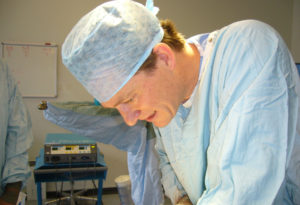Weight Loss Surgery in Turkey – Is it safe?
Weight loss surgery in Turkey has recently hit the headlines again as the BBC found worrying evidence of treatments resulting in deaths and serious health issues. Through their investigation into the trend, they discovered that seven British patients have died after weight loss surgery in last three years. While other patients have returned with serious health issues after having a gastric sleeve.
Speaking on the latest findings, Streamline’s director and expert bariatric surgeon, Guy Slater said, “my Streamline colleagues and I have looked after significant numbers of patients who have suffered complications after surgery aboard, in our NHS practices.
“My opinion has always been that all surgeons have complications and that for every poor outcome after surgery in Turkey, there must be many patients who have had very good outcomes. Until now, we haven’t been able to guess complication rates or compare them to UK complication rates, but seven deaths in three years does concern me.
“Looking at the circumstances of the deaths that have occurred, with the surgical insight that comes from being an experienced surgeon, it is likely that they have all occurred from shock, secondary to unrecognised bleeding or sepsis from leaks that haven’t been identified early and managed appropriately. These are avoidable causes of death. Complications like these, that can result in death happen from time to time in the UK too, but the data would suggest that they’re usually recognised early and managed appropriately, preventing death. We’re lucky in the UK to have the NHS safety net, if you suffer a complication from surgery, even privately, the safety net is there for you and unlike abroad the cost of your emergency care isn’t an issue.
Unlike in the UK there are no records of the number of people who have travelled to Turkey for weight loss surgery.
Discussing the UK process Mr Slater adds, “in the UK, bariatric surgeons have to enter all of their outcome data, both NHS and private into a National database. This outcome data is emailed to all UK bariatric surgeons each week.
“There has been one reported death in the UK, in the last year, from a total of circa 5000 patients who have undergone bariatric surgery, a mortality rate of 1 in 5000. High-risk, high BMI patients aren’t suitable for surgery abroad, travelling abroad is only really an option for the easiest, most straight procedures. It is likely this death was as a result of a high-risk case.
“If we use the UK’s 2022 mortality rate for weight loss surgery, to equal the low mortality rate, 35,000 patients would need to have had surgery successfully in Turkey in the last three years. It is possible to have that many patients travelling to Turkey, however I would be very surprised if that was the case.
“I understand how difficult life with severe obesity is after 20 years in the industry and I would never be critical of a patient who chooses to travel to Turkey for surgery.
“Unfortunately, in the UK, we just can’t compete with the low-cost of surgery aboard. The cost of the disposable instruments we use in the UK is more, than the cost of the whole package aboard; to deliver at that price clinics must be using cheaper products or re-using single use disposable equipment.
“Although the weight loss journey after surgery is long, the most critical time is the hour or two at the beginning of that journey, in the operating theatre. I cannot over-stress how important that time is; it’s why we vet our surgeons so closely, only allowing the best surgeons, with NHS practices to work with Streamline. A good, safe operation is the key to a good long-term outcome.”
Guy’s advice to anyone who is considering weight loss surgery is, “whether you’re going aboard or having surgery in the UK, research your surgeon carefully, don’t rely on patient reviews which may be fictitious and at best will tell you if the surgeon is nice. He may be nice, but can he operate well? Instead speak to your surgeon and ask them how many procedures they’ve done, how many deaths they’ve had, how many serious complications they’ve had, how often they’ve had to re-operate, and so on. Your life is too important to risk with a poor surgeon and a good honest surgeon won’t be offended by those questions, we expect them.”

